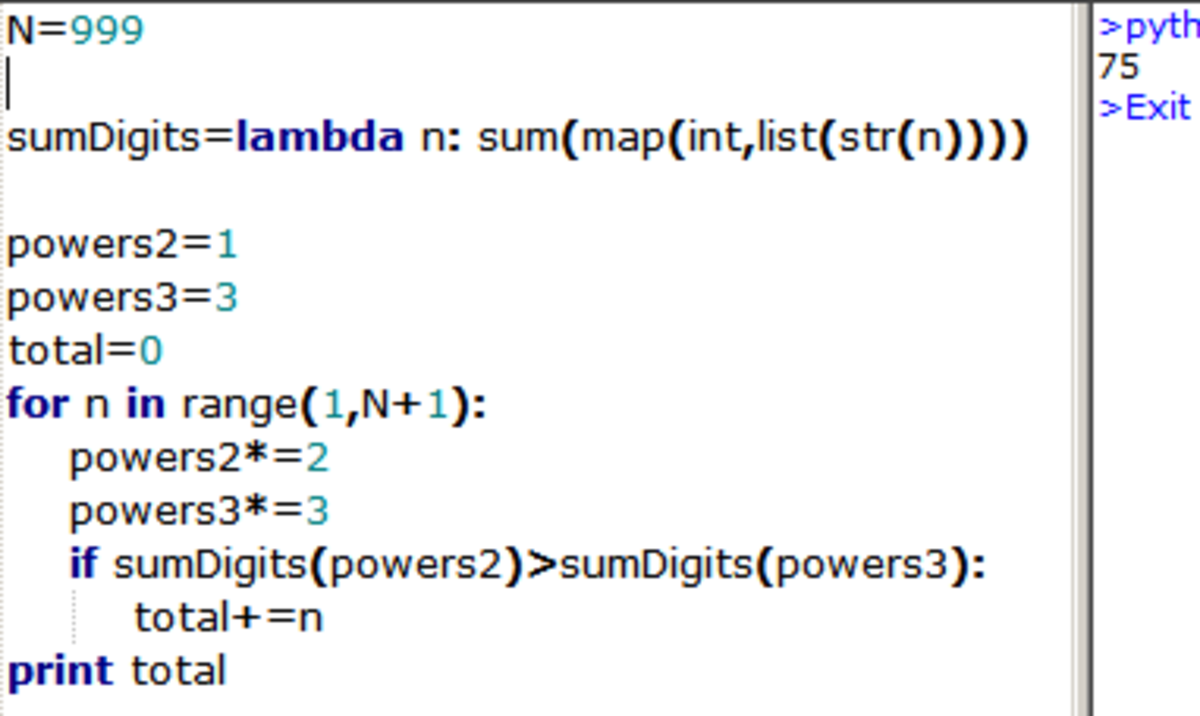Small is greater than large!
Find the sum of all integers such that sum of digits of sum of digits of .
The answer is 75.
This section requires Javascript.
You are seeing this because something didn't load right. We suggest you, (a) try
refreshing the page, (b) enabling javascript if it is disabled on your browser and,
finally, (c)
loading the
non-javascript version of this page
. We're sorry about the hassle.

I used the following Python coding.
There are only two values, n = 2 0 , 5 5 , therefore the required answer is 7 5 .